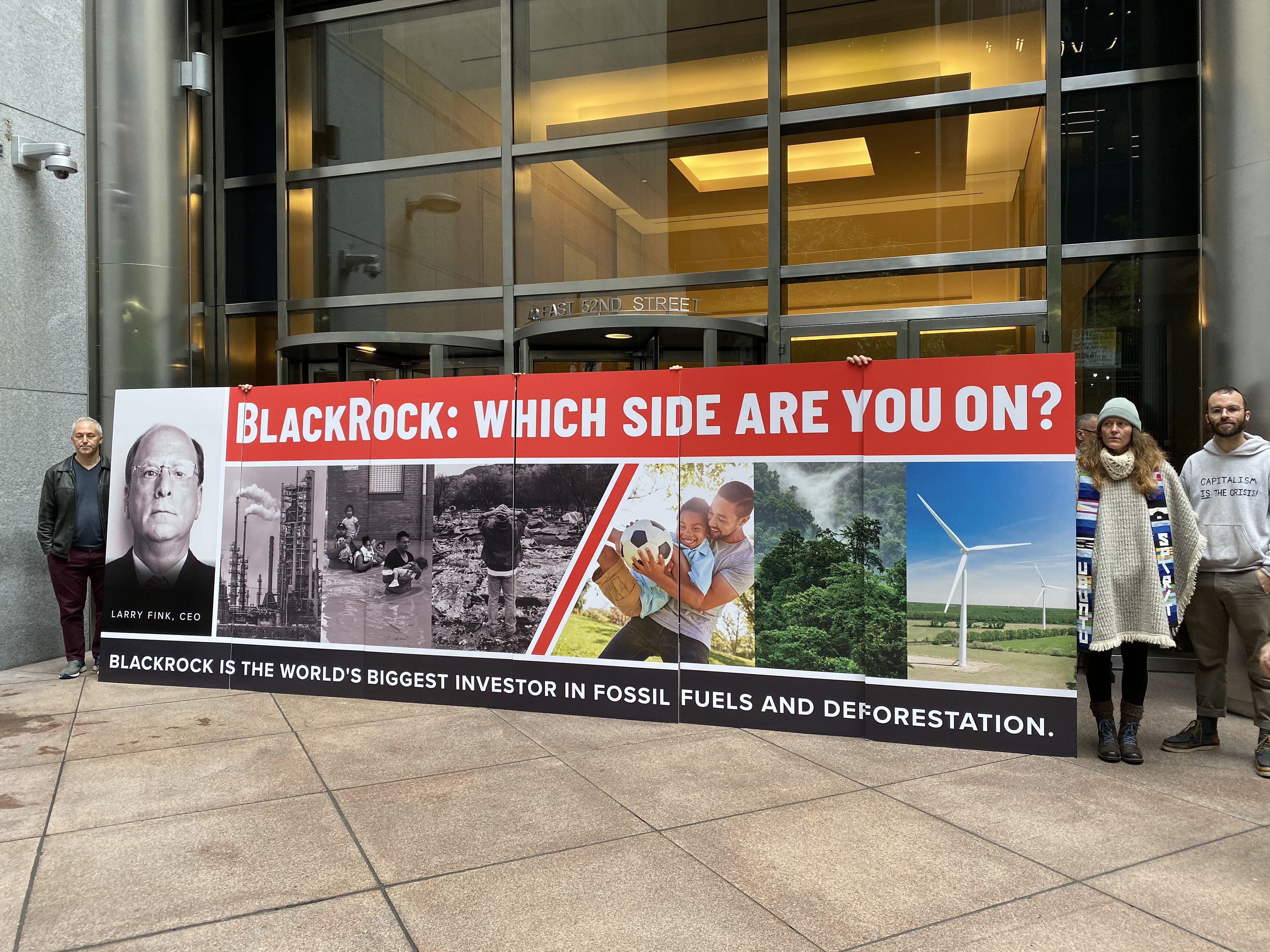The head of the world’s largest fund manager, BlackRock, announced Tuesday that the company will begin accounting for climate change in its investment decisions.
Chairman and CEO Larry Fink, in his annual open letter to fellow chief executives, called climate change “a defining factor in companies’ long-term prospects” – and acknowledged that it’s “a risk that markets to date have been slower to reflect.”
“The evidence on climate risk is compelling investors to reassess core assumptions about modern finance,” Fink said. “In the near future – and sooner than most anticipate – there will be a significant reallocation of capital.”
The announcement comes less than a week after BlackRock announced that it was joining Climate Action 100+, an “investor initiative” made up of more than 370 fund managers and asset owners – together holding some $35 trillion in assets – that are pressuring the world’s biggest polluters to slash their greenhouse gas emissions.
The dual moves are relatively limited steps for the investment colossus – more than 100 major financial firms have already announced similar measures. Nonetheless, BlackRock’s sheer scale makes the decision significant.
BlackRock alone manages assets valued at nearly $7 trillion, including particularly large holdings in oil, gas and coal firms. The company had long faced pressure from environmental advocates – including Climate Action 100+ – to use its outsize power and influence to get companies to reduce their heat-trapping emissions, or at least consider climate change in making investment decisions. As recently as last year, the company had resisted such moves.
This fall, hundreds of people demonstrated outside BlackRock’s headquarters in Manhattan, with some blocking the company’s entrance, to protest the company’s inaction on climate change.

"BlackRock has an enormous amount of influence that it could be using to tackle the climate crisis, but time and again it has failed to do so," Sierra Club Campaign Representative Ben Cushing said at the time. "Larry Fink needs to do three things: 1) Remove the worst polluting companies from actively-managed products; 2) Provide fossil-free and deforestation-free funds as the default in passively-managed products; and 3) Use BlackRock’s massive shareholder power to hold climate-destroying companies accountable by providing time-bound criteria for action, and voting for shareholder resolutions and new board members if companies won't align their business with the goals of the Paris Agreement."
Fink, in an [open letter to BlackRock clients,(https://www.blackrock.com/corporate/investor-relations/blackrock-client-letter) offered some indications of how BlackRock planned to begin incorporating climate change into its investment decisions – namely by “exiting investments that present a high sustainability-related risk,” such as mining companies that produce the coal used in coal-fired power plants. The company also plans to introduce “new investment products that screen fossil fuels,” and take steps to increase transparency.
The announcement is hardly altruistic: Coal markets, for example, have struggled in recent years, especially as the resource has been replaced by cheaper and cleaner-burning natural gas, particularly in the U.S. While coal consumption ticked up slightly in 2018 compared to 2017, it’s seen a dramatic drop-off in the U.S., throughout Europe and in other developed nations, and benchmark prices remain far below peaks reached nearly a decade ago.
Fink also sought to limit expectations. Oil, gas and coal, he noted, will continue to remain central parts of the world economy for the foreseeable future.
“Global economic development, particularly in emerging markets, will continue to rely on hydrocarbons for a number of years,” Fink wrote. “As a result, the portfolios we manage will continue to hold exposures to the hydrocarbon economy as the transition advances.”
Even so, environmental advocates welcomed the investment firm’s announcement – and said that they’ll now step up the pressure on investment firms that have so far refused to make similar moves.
“BlackRock’s new initiatives match the size of the crisis we’re seeing in 2020 and are the direct result of an outpouring of pressure from the global climate movement,” Diana Best, senior strategist for the Sunrise Project, said in a statement. “BlackRock beginning its shift of capital out of fossil fuels, including today’s divestment of coal in its actively managed funds, is a fantastic start and instantly raises the bar for competitors such as Vanguard and State Street Global Advisors. We will be looking for additional leadership from the company in, as Larry Fink put it, ‘fundamentally reshaping finance to deal with climate change,’ including additional shifts of capital out of fossil fuels.”









